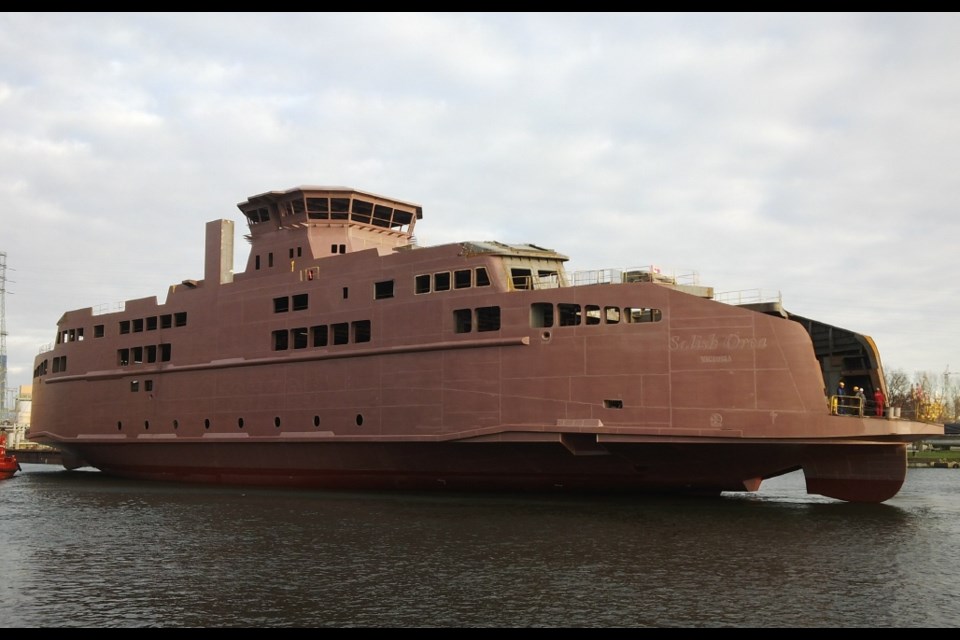The new Salish Orca ferry has been officially christened in Gdansk, Poland, where it is under construction.
One of three intermediate-class ferries being built by Remontowa Shipbuilding S.A., the dual-fuel ferry is scheduled to go into service late in 2016 on the Comox-Powell River route.
After a naming contest which attracted 7,000 entries, B.C. Ferries announced that the vessels would be dubbed the Salish class. The Orca will be the first on the job, followed by the Salish Eagle and Salish Raven, which will serve the Southern Gulf Islands after arriving in 2017.
Mary McDonagh, B.C. Ferries’ senior chief steward on the Queen of Burnaby, christened the ship.
The Orca’s life span is 40 years. It is replacing the 50-year-old Queen of Burnaby.
Remontowa Shipbuilding won the $165 million contract to build the 351-foot-long vessels. Each will have room for 145 vehicles and 600 passengers. The next two Salish-class ferries will arrive in 2017, B.C. Ferries said in a statement today.
The Salish ships are being built to operate on either liquefied natural gas or on low-sulphur diesel fuel. LNG is expected to be the main fuel source, resulting in reduced emissions and lower costs for B.C. Ferries.
B.C. Ferries has shortlisted three shipyards, including Seaspan, to carry out a mid-life upgrade and install dual fuel systems on its two Spirit-class ships.
Ferries predicts that using LNG in its fleet will lead to the reduction of the equivalent of about 9,000 tonnes of carbon dioxide emissions every year.
That is similar to taking 1,900 passenger vehicles off the road every year, because natural gas is cleaner than marine diesel fuel.
B.C. Ferries expects to spend more than $3 billion to replace older vessels and other assets in the next 12 years.
The Esquimalt Dry Dock company is starting an $18-million refit on the Queen of Cumberland ferry. That work is expected to be completed in April.
Up-island, the $15-million Baynes Sound Connector, a cable ferry built by Seaspan, was officially turned over to B.C. Ferries this month. It will run between Buckley Bay on Vancouver Island and Denman Island.
Boaters are being warned not to cross in front or behind the cable ferry when it is operating, B.C. Ferries said. The danger comes from submerged cables that rise close to the water’s surface, from the seabed, when the ferry is being pulled across the sound.
Signal lights have been installed at the Buckley Bay and Denman West terminals.
When the cable ferry is travelling, solid red lights will be illuminated. When those lights are green, it is safe for boaters to pass, B.C. Ferries said.



